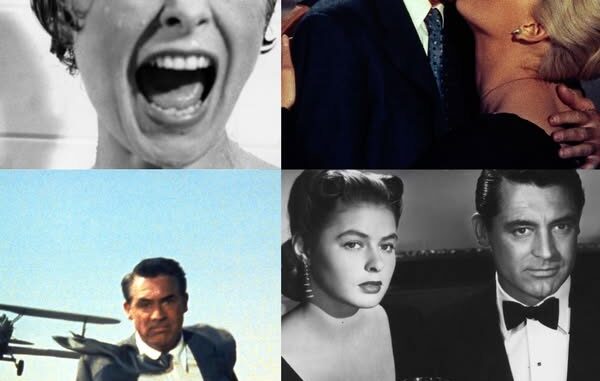
Alfred Hitchcock, often referred to as the “Master of Suspense,” was voted the Greatest Director of all time by Entertainment Weekly. This prestigious recognition was awarded to him based on his consistent body of work, a handful of groundbreaking movies, a compelling vision, and a unique personal style that cuts across films, genres, and decades. Hitchcock’s contribution to cinema has left an indelible mark, influencing generations of filmmakers and captivating audiences worldwide.
Why Alfred Hitchcock is Considered the Greatest Director
Alfred Hitchcock’s career spanned over five decades, during which he directed more than 50 feature films. His ability to masterfully blend suspense, psychological depth, and innovative storytelling techniques has set him apart from his peers. Hitchcock’s work is characterized by meticulous craftsmanship, memorable characters, and iconic cinematic moments that have become part of popular culture.
What makes Hitchcock truly great is not just his technical prowess but his personal stamp on each film. Whether it’s a psychological thriller, a crime drama, or a romantic suspense, Hitchcock’s films possess a distinct style—marked by clever visual storytelling, suspenseful pacing, and unexpected twists—that keeps audiences engaged and guessing until the very end.
Entertainment Weekly’s 100 Greatest Films and Hitchcock’s Dominance
Entertainment Weekly’s list of the 100 Greatest Films of all time features four of Hitchcock’s movies—more than any other director on the list. This achievement speaks volumes about Hitchcock’s influence and the enduring appeal of his work. The four films that made the list are:
-
Psycho (1960)
-
Vertigo (1958)
-
North by Northwest (1959)
-
Notorious (1946)
These films represent some of the finest examples of Hitchcock’s craftsmanship and storytelling genius.
Psycho (1960): Redefining the Horror Thriller Genre
Psycho is arguably Hitchcock’s most famous film and a landmark in horror cinema. The story follows Marion Crane (played by Janet Leigh), who steals money and checks into the eerie Bates Motel, run by the enigmatic Norman Bates. The film shocked audiences with its unexpected plot twists and the infamous shower scene, which remains one of the most iconic moments in film history.
Psycho broke new ground with its psychological complexity, and Hitchcock’s use of music and camera work created an atmosphere of tension and fear that set a new standard for thrillers and horror films.
Vertigo (1958): A Haunting Exploration of Obsession and Identity
Vertigo, starring James Stewart and Kim Novak, is now considered Hitchcock’s masterpiece, though it was initially met with mixed reviews. The film follows retired detective Scottie Ferguson, who is hired to follow a woman named Madeleine, leading to a complex story about love, obsession, and illusion.
Hitchcock’s innovative use of the “dolly zoom” camera effect to portray Scottie’s acrophobia (fear of heights) and the film’s rich symbolism have made Vertigo a favorite among critics and cinephiles alike. It was ranked number one in the 2012 Sight and Sound poll of the “Top 100 Greatest Films of All Time.”
North by Northwest (1959): The Ultimate Spy Thriller
North by Northwest is a thrilling espionage adventure featuring Cary Grant as Roger Thornhill, a man mistaken for a government agent and pursued across the United States. The film features some of Hitchcock’s most memorable sequences, including the famous crop-duster chase and a climactic showdown on Mount Rushmore.
With its blend of suspense, romance, and humor, North by Northwest exemplifies Hitchcock’s ability to entertain while keeping audiences on the edge of their seats.
Notorious (1946): A Spy Thriller with Depth and Emotion
Notorious stars Cary Grant and Ingrid Bergman in a story about espionage, love, and betrayal. The film’s intricate plot involves Nazi spies in South America and explores themes of trust and sacrifice. Hitchcock’s direction, combined with the strong performances of the leads, creates a suspenseful and emotionally resonant narrative.
Notorious is often praised for its sophisticated storytelling and the chemistry between its stars, making it one of Hitchcock’s standout works.
Hitchcock’s Legacy in Modern Cinema
Alfred Hitchcock’s films have not only stood the test of time but continue to influence modern filmmakers. Directors such as Steven Spielberg, Martin Scorsese, and Christopher Nolan have cited Hitchcock as a major inspiration. His innovative camera techniques, narrative structures, and psychological depth remain foundational elements in contemporary filmmaking.
Beyond technical influence, Hitchcock’s exploration of human psychology and the darker aspects of human nature resonates with audiences today. His ability to tap into universal fears and desires ensures that his films are as relevant now as they were when first released.
Why Hitchcock’s Films Still Matter Today
For movie lovers and casual viewers alike, Hitchcock’s films offer a masterclass in suspense and storytelling. They are meticulously crafted, emotionally engaging, and filled with moments that have become cinematic legends. Watching a Hitchcock film is not just entertainment; it is an immersive experience that showcases the art of filmmaking at its finest.
Moreover, Hitchcock’s work encourages viewers to think critically about perception, identity, and the nature of fear—making his films intellectually stimulating as well as thrilling.
Conclusion
Alfred Hitchcock’s status as the Greatest Director of all time is well-deserved. His remarkable career, marked by iconic films like Psycho, Vertigo, North by Northwest, and Notorious, demonstrates his unmatched ability to craft suspenseful, innovative, and emotionally complex stories. Entertainment Weekly’s recognition and the inclusion of four Hitchcock films in the 100 Greatest Films of all time underscore his profound impact on cinema.
Whether you are discovering Hitchcock for the first time or revisiting his classics, his films remain essential viewing that continues to captivate, inspire, and thrill audiences worldwide.
